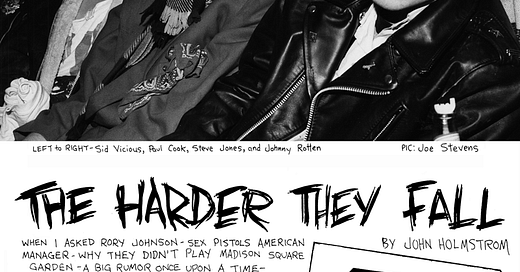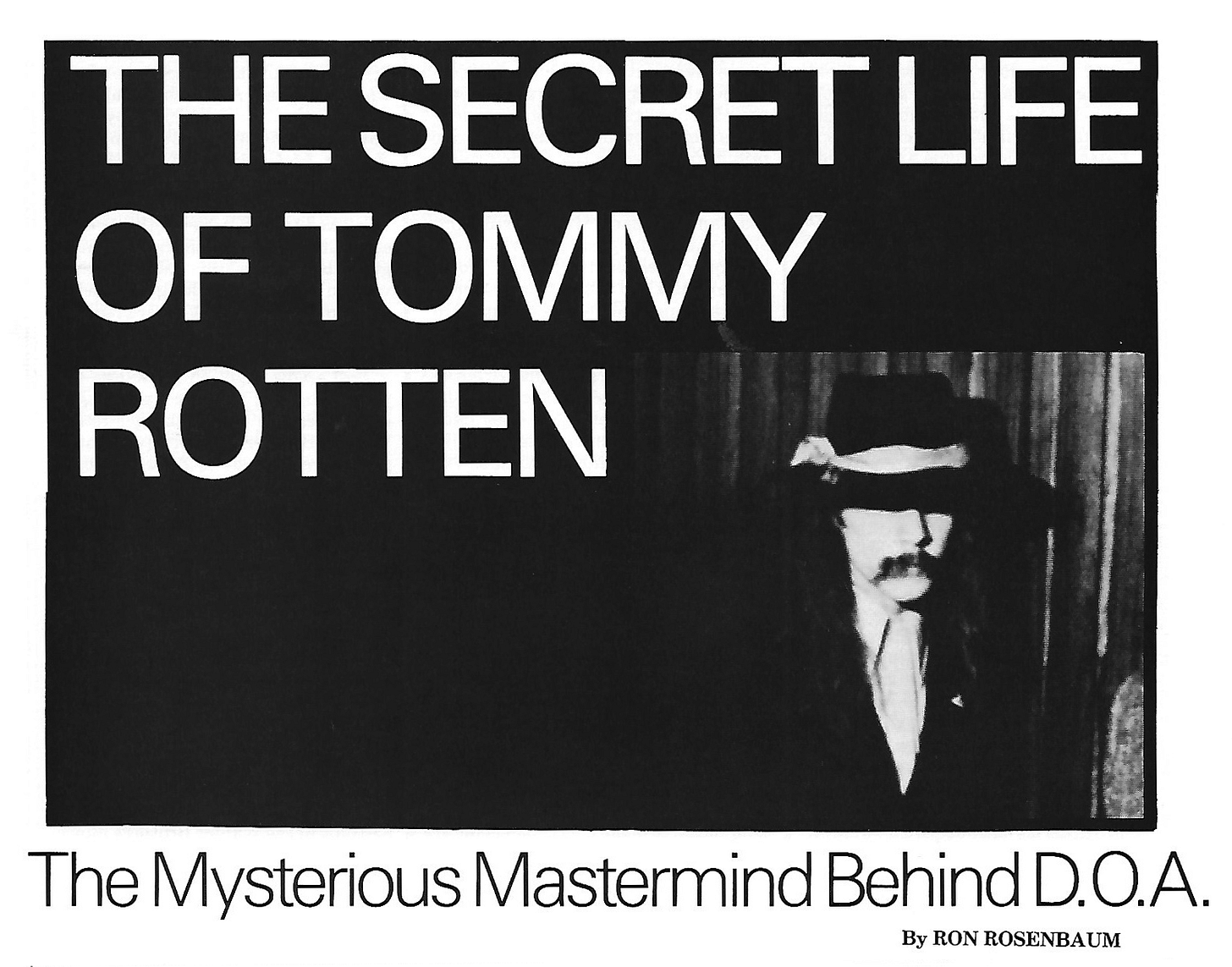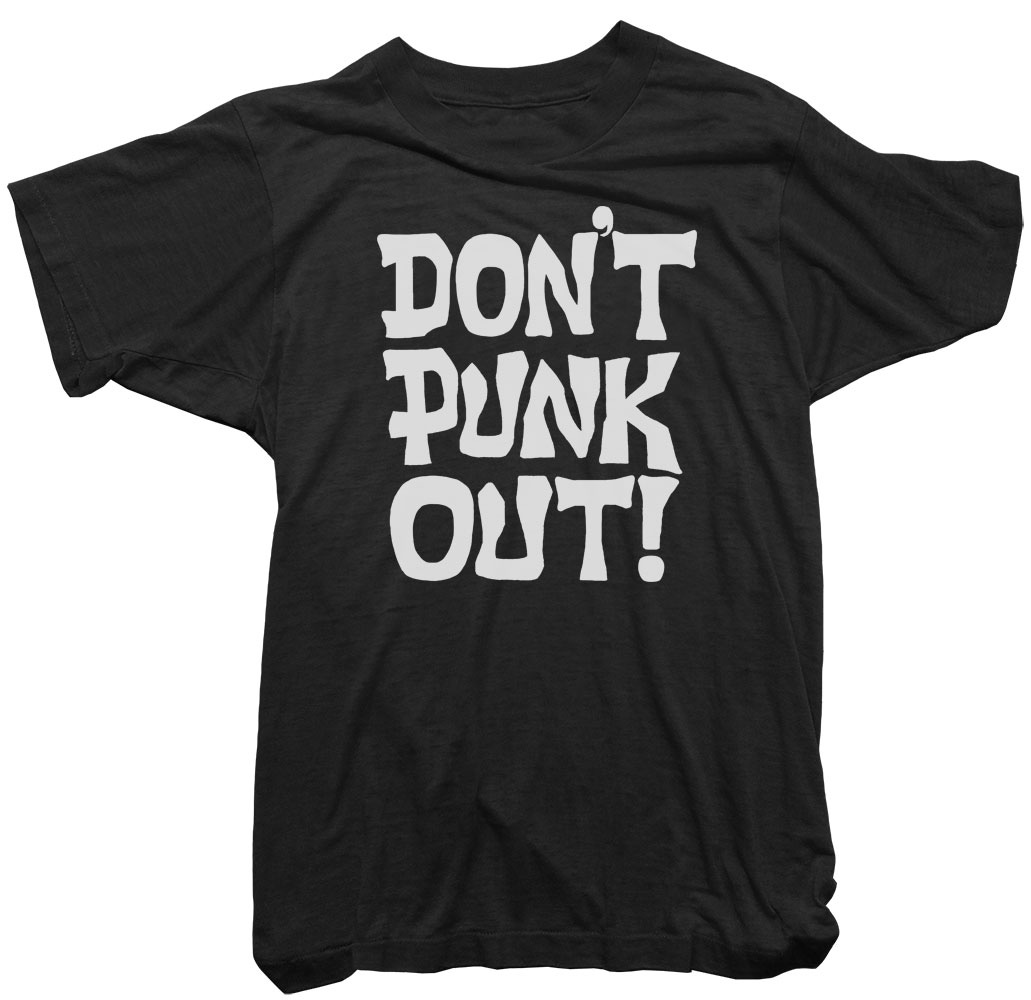In our last episode, I was on my way back to the PUNK Magazine office while filmmaker Lech Kowalski was hanging out in Tom Forcade’s office, trying to talk him into backing the idea of filming the Sex Pistols US Tour.
Kowalski heard about the Sex Pistols 1978 US tour from a Rolling Stone writer on Tom Snyder’s The Tomorrow Show, and decided right away to film the tour. According to an interview in PUNK Magazine’s D.O.A. Filmbook, Lech called several people to try to raise the money, but they all thought he was crazy!
He called Tom Forcade, who was interested in making the film. Lech traveled to New York City with just $100 in his pocket, convinced that he had a handshake deal. However, by the time he got to the High Times magazine offices, Forcade changed his mind and told him to leave. Lech refused to give up, and used a phone next to Tom’s office to try to find an investor. That’s when I stopped by and talked with Tom to thank him for the Christmas bonus, and he told me not to go anywhere for the next few days. I think Tom has already decided to finance the film. He was just stringing Lech along, and testing his resolve while contacting friends and connections to join him on his next wacky adventure. Once Tom agreed to back the film, Lech grabbed his film equipment and prepared to grab a cab to the airport.
Tom stopped him. He had a better idea: They took a helicopter instead! (Lech thought to himself: “Here we go, a real low-budget extravaganza.”)
Early the next morning (January 5, 1978), Tom paid a visit to Noel Monk, the tour manager, at his motel. Monk was immediately in a bad mood since Tom woke him up from bed, so when Tom tried to bribe him with an antique car in return for access to the shows? Monk flatly refused and told him to get the hell out of there! They became instant enemies. The animosity grew after Monk contacted Warner Brothers Records, who had a long dossier on Forcade: For instance, Tom started the Rock Liberation Front, which was opposed to corporate control of rock music, and launched attacks against Allen Klein and Phil Spector over royalties from George Harrison’s Concert for Bangladesh. This set the tone for the rest of the tour: Noel Monk and Warner Brothers versus Tom Forcade.
Above: the Rufus Standefer profile from the D. O. A. Filmbook. His IMDB page lists him as the Cinematographer (which includes work on a Muppets movie).
Rufus joined Lech in Atlanta and ended up shooting the entire tour, and then some, after getting a phone call to film a concert for $100 a day. “I was into the Pistols and couldn’t get a ticket. Nobody could get tickets. There must have been eight or nine hundred people crammed into a five hundred capacity place. All the news media were there: CBS, NBC, BBC, so we were just another camera crew.”
“We went back to the hotel about 2:00 am and Lech asked me if I wanted to go to Memphis. I said, ‘Sure, I’ll go home and get some things. When are we leaving?’ He said: ‘Tonight.’ I didn’t have a suitcase or anything, just a pair of jeans, a t-shirt and maybe a sweater. I didn’t get back for 14 days. We were all burnt out at the end of the job. And a few days later we left to film in England.”
The Sex Pistols in Atlanta
Above: a scene from D.O.A.: A Rite of Passage. (Hand-lettered lyrics by yours truly.)
The Sex Pistols show in Atlanta was reportedly sort of bland: No one threw up on stage, there were no riots, no fights, no controversy. Just a heaping helping of great rock ’n’ roll as the Pistols almost always delivered. Tom and the film crew were able to scam their way in, and filmed some great stuff, as you can see from the D. O. A.: A Rite of Passage documentary film footage above.
Ted Cohen was on the tour as Warner Brothers’ Director of East Coast Artist Development, but on this tour he was sometimes recruited to be part of their security detail. He was part of the panel discussion in Tulsa, Oklahoma last January 11 (you can see it at johnholmstrom.com), and told the audience about the time he encountered Tom Forcade during the Atlanta show while Lech and Rufus were filming.
Cohen broke one of their cameras while they were filming! When Forcade told him: “That’s a $10,000 camera.”
Cohen replied: “Not any more it isn’t!”
Of course, during the Tulsa panel discussion I scolded Ted for that: Destruction of an artist’s tools is the opposite of being creative, and I support creative efforts whether I like the results or not. It’s too bad that people in the recording industry often forget that creativity is their lifeblood, not playing things safe (but that’s probably why so much music sucks).
It looks ridiculous in this day and age when everyone in the audience has a cell phone that the Warner Brothers security detail was so concerned that a film crew was covering the Sex Pistols shows while they made no effort to film anything. It’s almost criminal that they shut down Tom and Lech when no one aside from the news media was attempting to chronicle the tour. In hindsight, Warner Brothers would have been better off making a deal with Tom Forcade so that the Sex Pistols performances were documented, especially since the Sex Pistols did eventually make a deal with High Times to use some of the footage in their own documentary, The Filth and the Fury. And that deal led to the DVD release of D.O.A.: A Rite of Passage.
That said, Tom could be socially awkward, and was often his own worst enemy. As Ron Rosenbaum, a close associate, observed in the D.O.A. Filmbook:
“One thing about Forcade: he never went out of his way to make a good first impression. Upon meeting him the first time most people had an experience of thoroughgoing mutual balanced dislike and distrust, sometimes verging on instant hatred. He did not go out of his way to be charming to strangers… But part of it turned out to be justified distrust: time after time people who had lived and worked for months and years in his offices had turned out—as later documented by copiousFreedom of Information documents obtained from intelligence agencies—to have been active spies or provocateurs.”
On the other hand, Noel Monk acted like a real asshole during the tour, using several biker/bodyguards to bully anyone he didn’t like. There was no reason for a Warner Brothers tour to treat the film crew and the music journalists on the tour as if we were Public Enemy Number One.
Although Forcade had also hired bodyguards, he never attended another live show, preferring to stay in his hotel room to try to pry more money from his company: He was spending like crazy, putting most of the expenses on his credit card. It didn’t take High Times executives long to realize that Tom was on another of his wild, manic-depressive adventures, so they took measures to stop him from bankrupting the company. The magazine was already in a perilous situation because the Hustler magazine empire was distributing High Times, and the shooting of Larry Flynt on March 6, 1977 threw both companies into financial chaos.
This was the situation: When Tom hired Andy Kowl as Publisher he specifically told him that part of his job was to prevent him from spending too much money whenever he went on one of his crazy bipolar adventures. But to Tom, this film was different. Tom had been involved in the 1969 Woodstock festival (since it was advertised only through the Underground Press Syndicate that Tom organized), and Forcade never got over the fact that the Warner Brothers film ended up making millions of dollars, while the counterculture that created the event got nothing.
Tom was convinced that the Sex Pistols were about to create a similar counterculture revolution, so to him this was a battle of good vs. evil. He became obsessed with finishing what he started in Atlanta. Tom never let anyone or anything get in his way.
This all set the stage for the crazy adventure that I took, which made the most insane rock ’n’ roll tour of all time even crazier.
Here’s a link to the story I researched and wrote for High Times in 1989:
The Life and High Times of Tom Forcade
https://hightimes.com/culture/high-times-greats-life-high-times-tom-forcade/
Next Episode: I join the tour in Memphis!
This newsletter is free! If you’d like to support it, please encourage someone else to subscribe, like and/or comment, and buy a t-shirt from my advertisers:
Above: A PUNK Magazine t-shirt, available from wornfree.com
Another PUNK Magazine t-shirt available from wornfree.com.








